

ACADEMICS
In Early Childhood Education, we begin the children’s formation in order to guarantee their learning rights: to live together, play, participate, explore, express themselves and get to know each other.
EARLY CHILDHOOD
Early childhood is the stage in which the child lays the foundations for physical/motor, psychosocial, affective, cognitive and linguistic skills development. It is during this period that the child learns to speak, walk, socialize, eat and develop autonomy. Our students receive constant input that allows the expected development for each age group. Teachers are the orchestrators of the teaching-learning process, acting as mediators of knowledge, while students are the protagonists. Awakening curiosity and valuing the investigative method, we seek to help children develop strategies to solve problem situations and conflicts. We value – a lot – social emotional learning and offer constant monitoring to students and their families.
A THE IMPORTANCE OF PLAY
Play is an essential activity for young children. Through playing, the child constructs knowledge, communicates with the world and begins to establish social relationships. We believe that the best way for a child to learn is to play and, therefore, all teaching during Early Childhood Education happen in a playful way.
INTERACTION
Interaction is another aspect of great importance in Early Childhood Education, providing the student with the construction of meaningful learning in the school environment. Through social interactions, children begin to develop language, besides the ability to work collectively, respect others and social rules
ENGLISH IMMERSION
In Early Childhood Education, all content is taught in English. The longer the child is exposed to English, the more the language is naturally acquired. Therefore, we always emphasize: here, classes are in English and not “English classes”. This way, our students are able to develop critical thinking and comprehension skills in both their first and second language.
INFRASTRUCTURE
The Early Childhood Education campus was designed to provide children a welcoming and familiar environment. We offer large and open classrooms with child-friendly furniture. Our cafeteria has smaller tables and benches, appropriated to the children’s age, encouraging their autonomy during the meals. The diversity of environment meets the pedagogical needs expected in the routine of Early Childhood Education: a synthetic sand tank, two outdoor playgrounds surrounded by fruit trees and plants, music room, arts room, library and a new area for extracurricular activities. Get to know our space better by accessing the Early Childhood Education Campus photo gallery or schedule your visit!
OUR TEAM
Our team of teachers, assistants and nurseries is highly qualified and in constant training. It is important to mention that all teachers, without any exception, have degrees in Pedagogy.
ACTIVITIES PROPOSED IN THE CURRICULUM
Our curriculum framework is reviewed annually by our educators, offering activities that make sense to the students. All activities offered in our schedule aim to achieve results according to the learning expectations at each stage of Early Childhood Education. We understand that each child has their own time and, therefore, we respect and value the individuality of each one of our students.
Classes cover all the guiding principles of Early Childhood Education: Music, Visual and Performing Arts, Movement, Oral and Written Language, Nature and Society and Mathematics.
Our schedule is structured in five areas of experience proposed by BNCC (Brazilian
National Common Curricular Base):
- Myself, the other and the us.
- Body, gestures and movements.
- Traits, sounds, colors and shapes.
- Listening, speaking, thinking and imagining.
- Spaces, time, quantities, relations and transformations.
AFTER SCHOOL EDUCATIONAL PROGRAM
For part-time and full-time students from Nursery III to Kindergarten II, we offer a range of activities that make up our Educational Program:
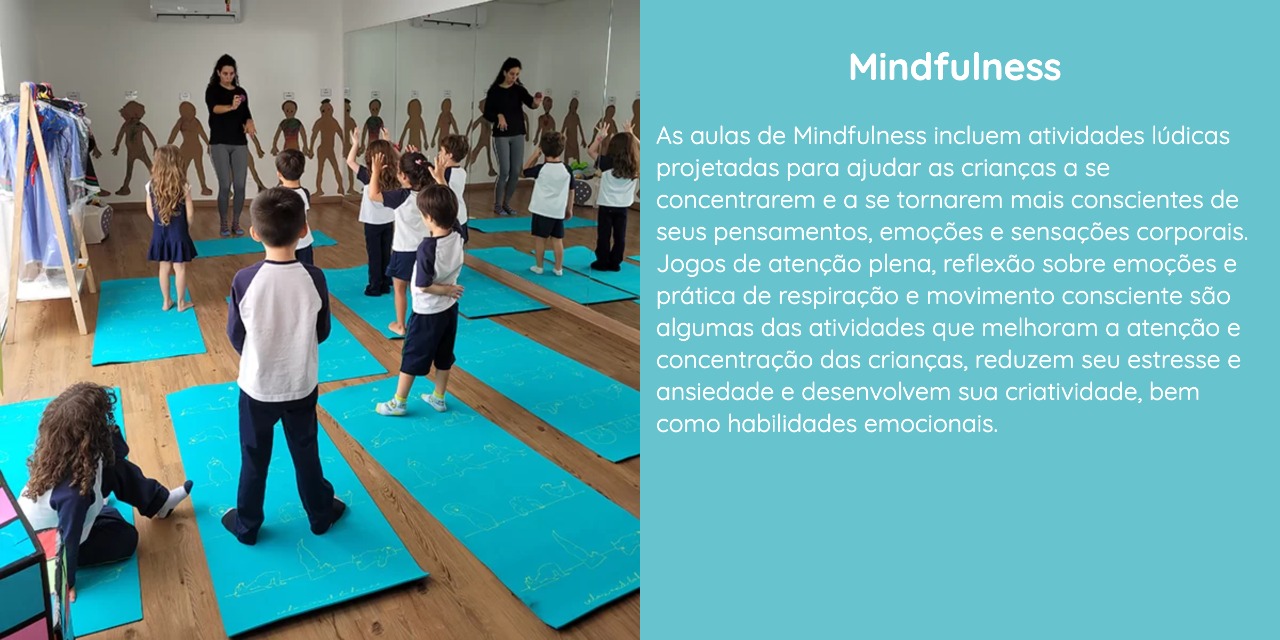

designed to help children focus and become more
aware of their thoughts, emotions and bodily
sensations.
Mindfulness games, reflecting on emotions, and
practicing mindful breathing and movement are
some of the activities that improve children's
attention and concentration, reduce their stress
and anxiety, and develop their creativity as well as
their emotional skills.
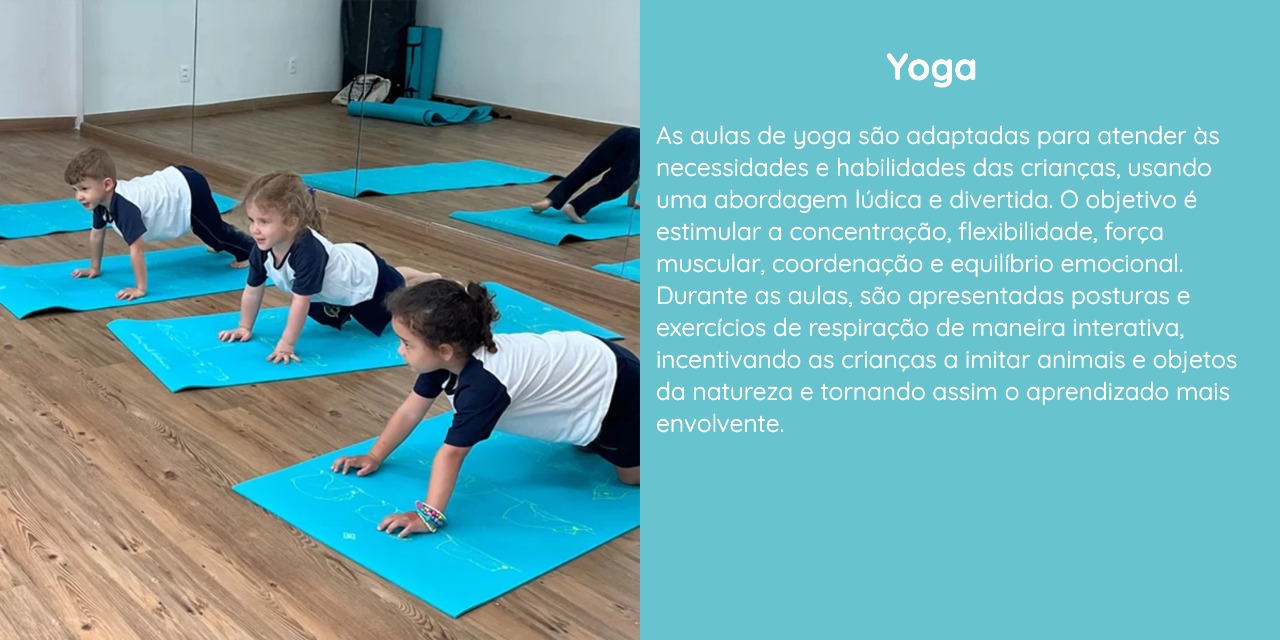

and abilities using a playful and fun approach. The
goal is to stimulate concentration, flexibility, muscle
strength, coordination and emotional balance.
During classes, postures and breathing exercises
are presented in an interactive way, encouraging
children to imitate animals and objects from nature
and thus making learning more engaging.
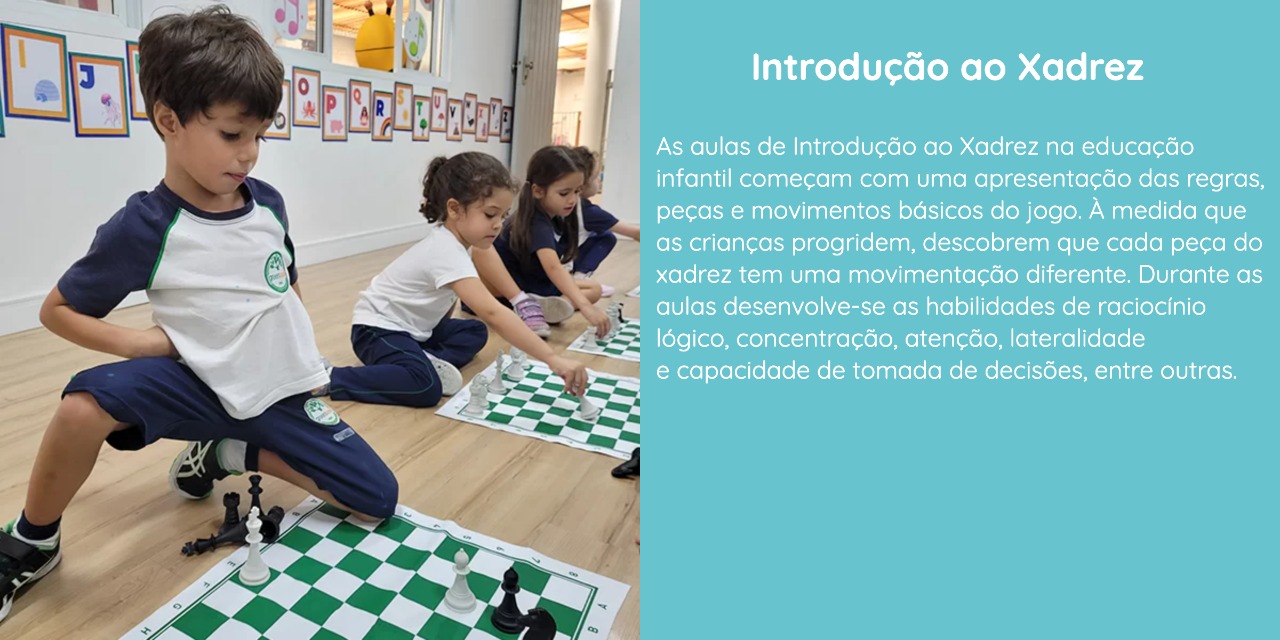
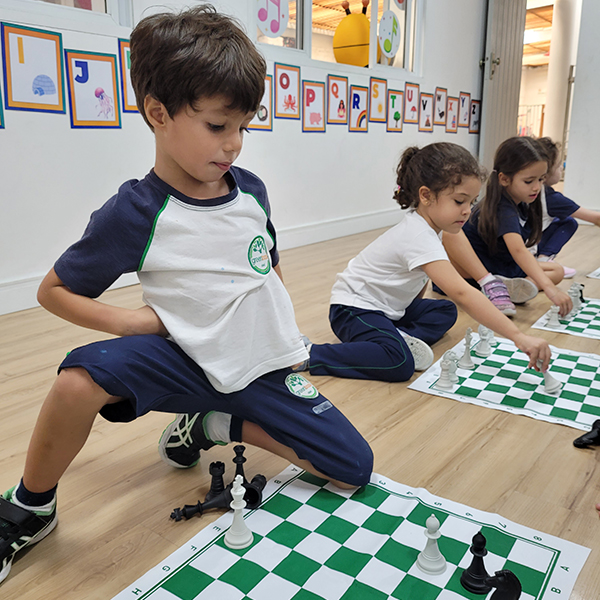
Education begin with a presentation of the rules,
pieces and basic moves of the game. As children
progress, they discover that each chess piece moves
differently. During classes, logical reasoning,
concentration, attention, laterality and
decision-making skills are developed, among others.
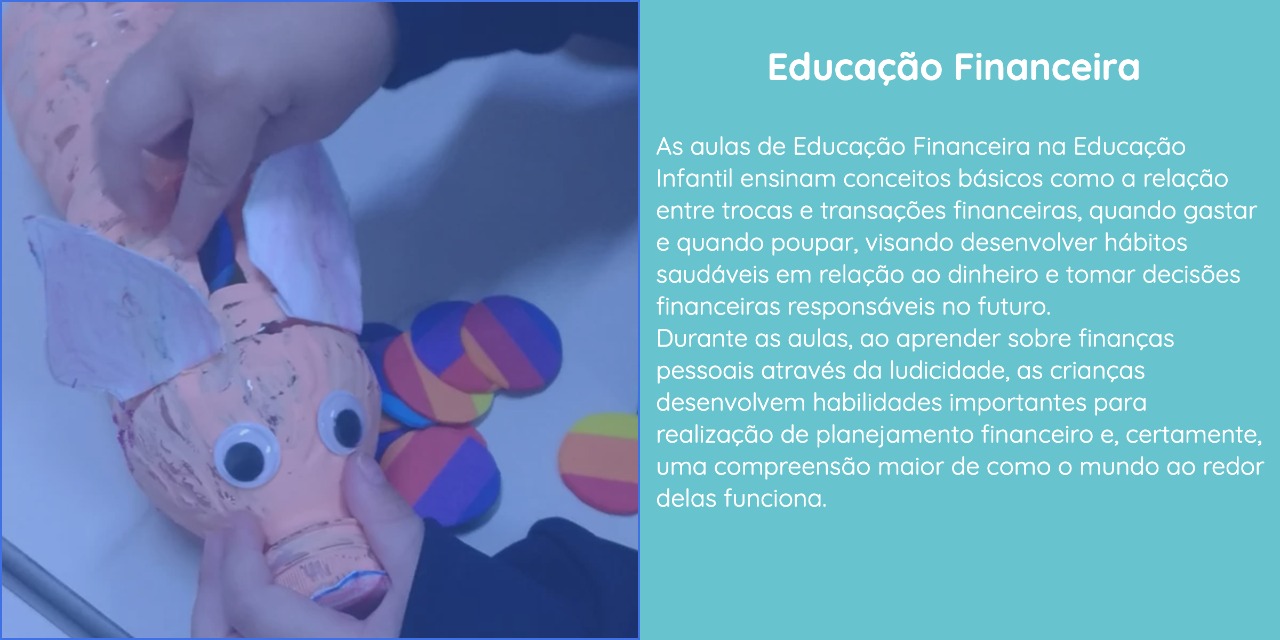
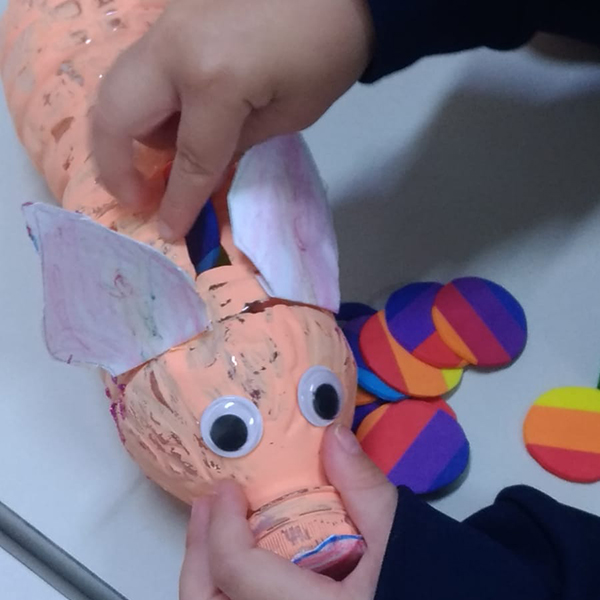
Education teach basic concepts such as the
relationship between exchanges and financial
transactions, when to spend and when to save,
aiming to develop healthy habits in relation to
money and make responsible financial decisions in
the future. During classes, by learning about
personal finances through play, children develop
important skills for carrying out financial planning
and, certainly, a greater understanding of how the
world around them works.
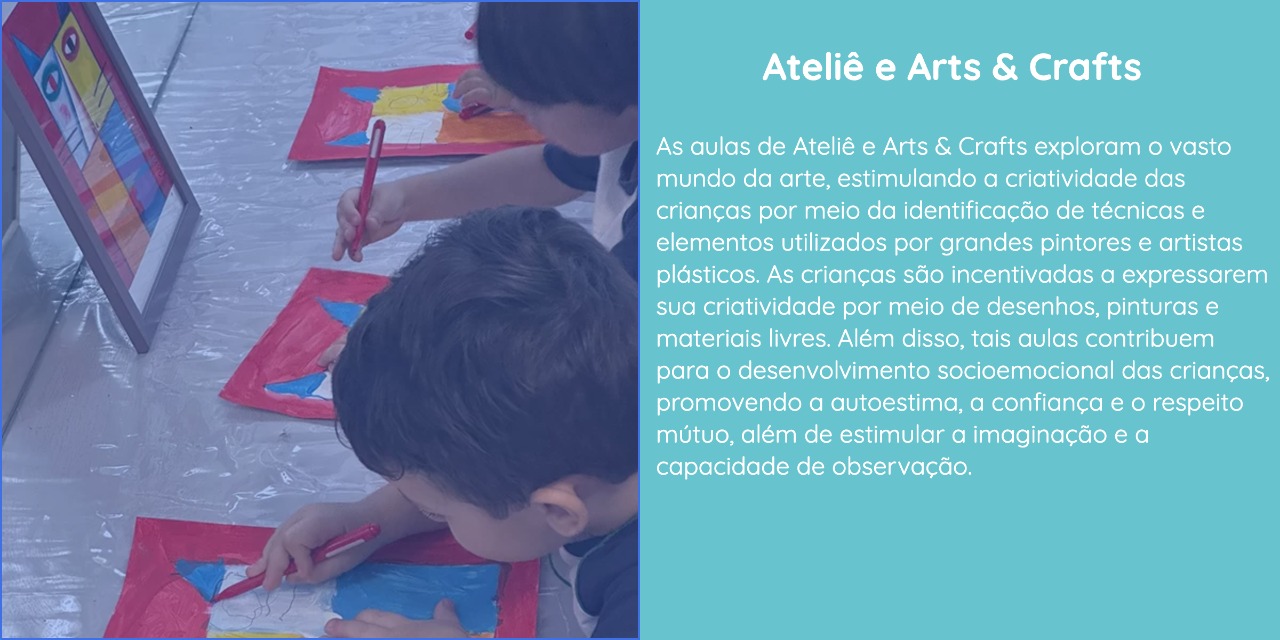
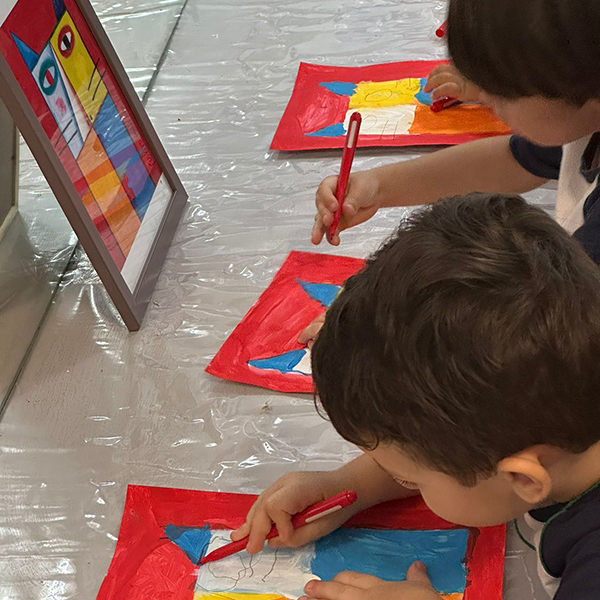
vast world of art, stimulating children's creativity by
identifying techniques and elements used by great
painters and plastic artists. Children are encouraged
to express their creativity through drawings, free
paintings and supplies. In addition, such classes
contribute to the socio-emotional development of
children, promoting self-esteem, trust and mutual
respect, as well as stimulating imagination and
observation skills.
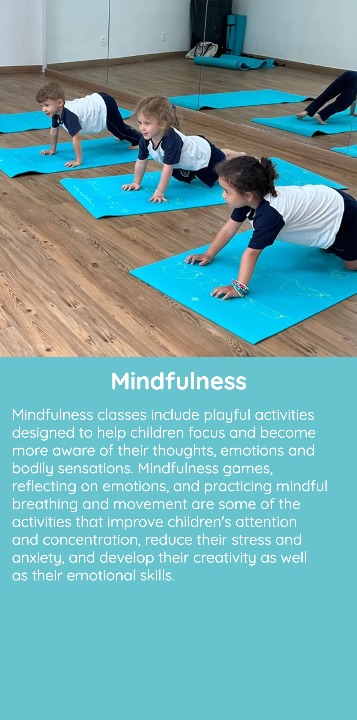

designed to help children focus and become
more aware of their thoughts, emotions and
bodily sensations. Mindfulness games,
reflecting on emotions, and practicing mindful
breathing and movement are some of the
activities that improve children's attention
and concentration, reduce their stress and
anxiety, and develop their creativity as well
as their emotional skills.
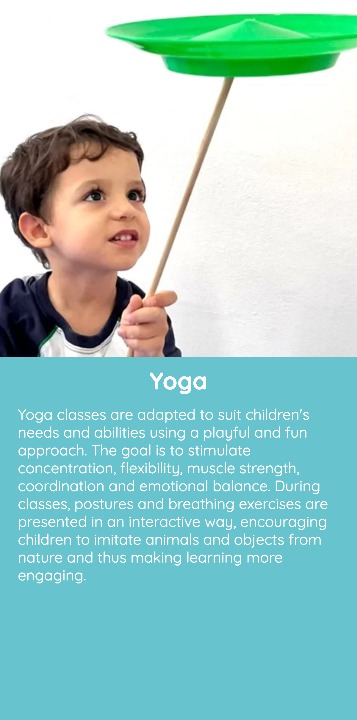
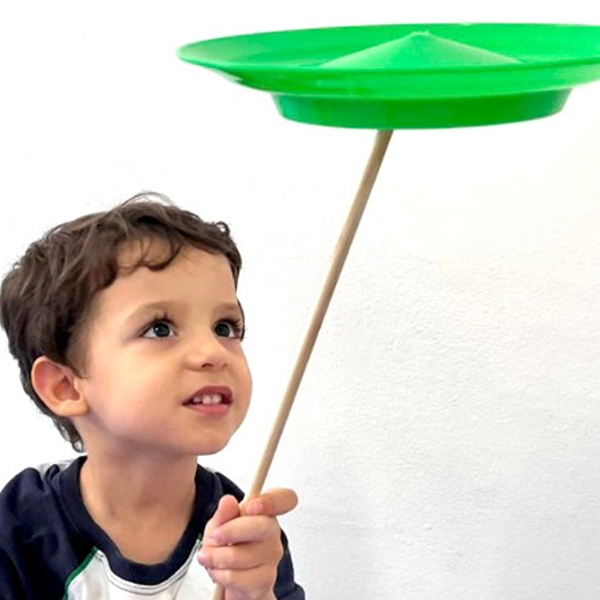
needs and abilities using a playful and fun
approach. The goal is to stimulate
concentration, flexibility, muscle strength,
coordination and emotional balance. During
classes, postures and breathing exercises are
presented in an interactive way, encouraging
children to imitate animals and objects from
nature and thus making learning more
engaging.
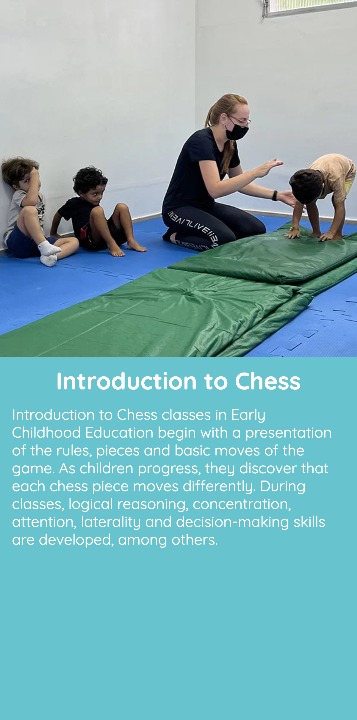
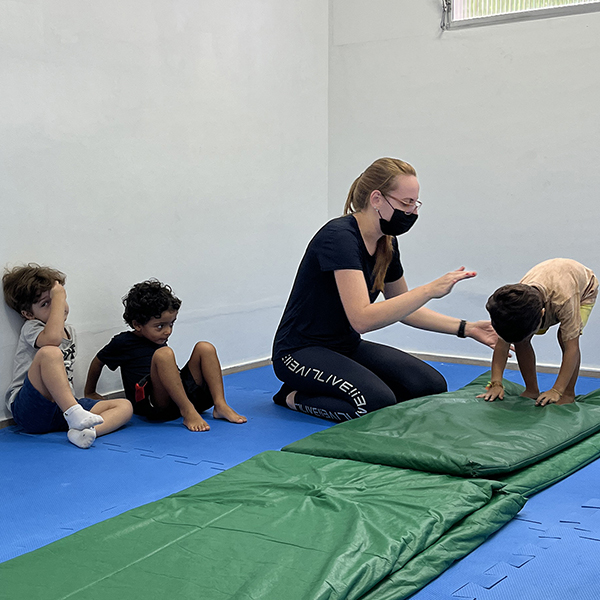
Childhood Education begin with a presentation
of the rules, pieces and basic moves of the
game. As children progress, they discover that
each chess piece moves differently. During
classes, logical reasoning, concentration,
attention, laterality and decision-making skills
are developed, among others.
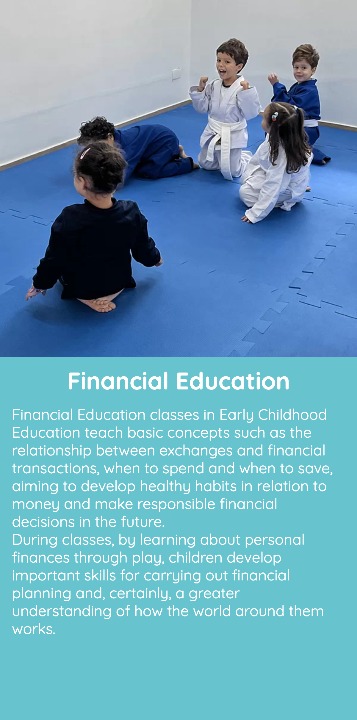
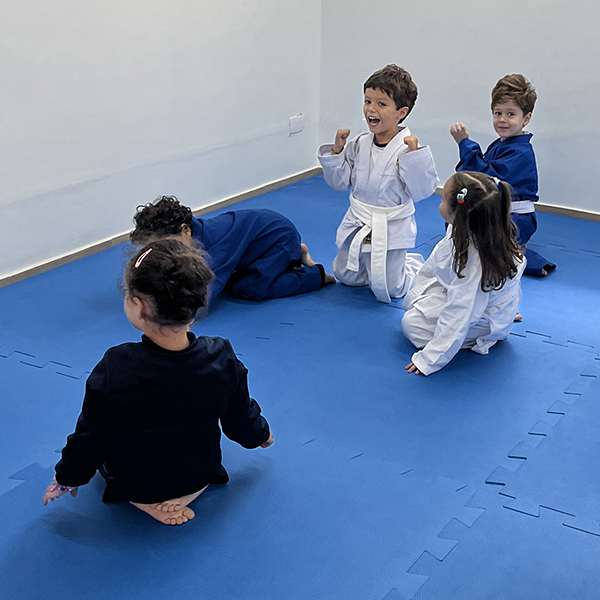
Education teach basic concepts such as the
relationship between exchanges and financial
transactions, when to spend and when to save,
aiming to develop healthy habits in relation to
money and make responsible financial
decisions in the future.
During classes, by learning about personal
finances through play, children develop
important skills for carrying out financial
planning and, certainly, a greater
understanding of how the world around them
works.
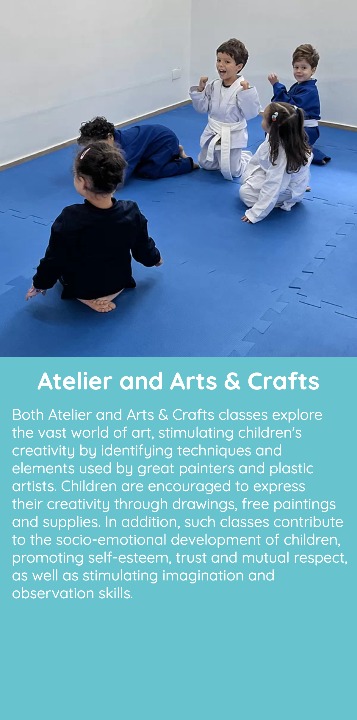

the vast world of art, stimulating children's
creativity by identifying techniques and
elements used by great painters and plastic
artists. Children are encouraged to express
their creativity through drawings, free paintings
and supplies. In addition, such classes contribute
to the socio-emotional development of children,
promoting self-esteem, trust and mutual respect,
as well as stimulating imagination and
observation skills.
We also offer a grid of five optional extracurricular activities, starting from Nursery III. Know more!
To know more about our infrastructure and pedagogical team, come visit us! It will be a pleasure to welcome you and your family in our school!

